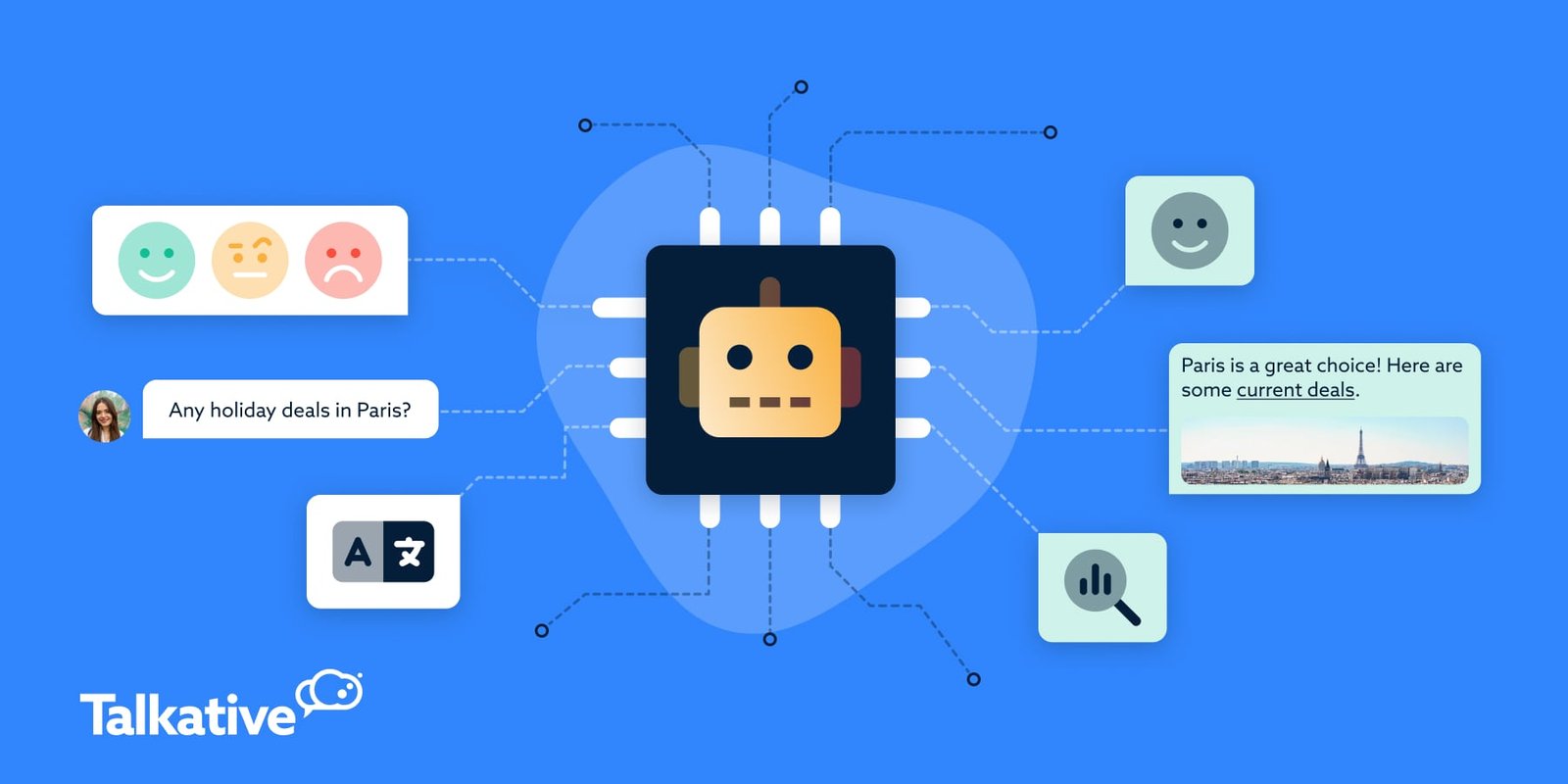
In today’s fast-paced digital world, integrating mobile apps and AI assistants has become essential for businesses aiming to provide seamless customer interactions and improve operational efficiency. The combination of these cutting-edge technologies offers a powerful solution that enhances user experiences and streamlines business processes. From ordering food to scheduling appointments, mobile apps and AI assistants are revolutionizing the way we interact with businesses, making it easier and more convenient than ever before.
When it comes to customer interactions, mobile apps play a crucial role in providing a personalized and user-friendly experience. With just a few taps on their smartphones, customers can access a wide range of services, browse products, and make purchases, all from the comfort of their own homes. These apps can also leverage AI assistants to provide intelligent recommendations, answer customer queries, and even assist with complex tasks. By integrating mobile apps with AI assistants, businesses can create a seamless and efficient customer journey, leading to increased satisfaction and loyalty.
Furthermore, the integration of mobile apps and AI assistants also brings significant benefits in terms of operational efficiency. By automating repetitive tasks and leveraging AI-powered algorithms, businesses can streamline their processes, reduce manual errors, and optimize resource allocation. For example, customer support teams can use AI assistants to handle basic inquiries, freeing up their time to focus on more complex and critical issues. This not only improves efficiency but also enables businesses to provide faster and more accurate responses to customer queries, ultimately enhancing the overall customer experience.

In conclusion, the integration of mobile apps and AI assistants is a game-changer for businesses in today’s digital landscape. It empowers businesses to provide seamless customer interactions, personalized experiences, and improved operational efficiency. By harnessing the power of these technologies, businesses can stay ahead of the competition and deliver exceptional value to their customers. So, whether you’re a small startup or a large enterprise, embracing the integration of mobile apps and AI assistants is a smart move that can elevate your business to new heights.
Integrating mobile apps and AI assistants can greatly enhance customer interaction and improve efficiency. By seamlessly combining the power of mobile apps with AI technology, businesses can provide personalized and real-time assistance to their customers. Whether it’s through chatbots, voice recognition, or predictive analysis, AI assistants can deliver quick and accurate responses, saving both time and effort. This integration allows for a smoother customer experience, increased productivity, and better overall satisfaction. Embracing this technology can give businesses a competitive edge in today’s digital landscape.
Integrating Mobile Apps and AI Assistants for Seamless Customer Interaction and Efficiency
Mobile apps and AI assistants have revolutionized the way businesses interact with their customers. With the rapid advancements in technology, integrating mobile apps and AI assistants has become essential for businesses looking to enhance customer interaction and improve operational efficiency. This article will explore the benefits and strategies of integrating mobile apps and AI assistants, highlighting their impact on seamless customer interaction and efficiency.
The Power of Mobile Apps
Mobile apps have become an integral part of our daily lives. They provide convenience, accessibility, and personalized experiences for users. For businesses, mobile apps offer a direct channel to reach customers, enabling them to deliver targeted content, promotions, and offers. By integrating mobile apps into their operations, businesses can enhance customer interaction in several ways.
Firstly, mobile apps allow businesses to provide personalized experiences to their customers. Through user profiles and preferences, businesses can tailor content and recommendations based on individual needs and preferences. This customization creates a more engaging and relevant experience, fostering a stronger connection between the business and the customer.
Secondly, mobile apps enable businesses to streamline customer interactions. From making purchases to accessing support, customers can perform various tasks directly through the app, eliminating the need for multiple channels and reducing friction. This streamlined process enhances efficiency and improves overall customer satisfaction.
Benefits of Integrating Mobile Apps
Integrating mobile apps into business operations offers numerous benefits for both the business and its customers.
Improved Communication: Mobile apps provide a direct communication channel between businesses and customers. Push notifications, in-app messaging, and chatbots enable real-time communication, allowing businesses to deliver important updates, promotions, and personalized offers directly to the customers’ devices.
Enhanced Loyalty and Engagement: Mobile apps can help businesses build brand loyalty and customer engagement. Through personalized experiences, rewards programs, and gamification features, businesses can incentivize customers to interact with the app, fostering long-term loyalty and increasing customer retention.
Efficient Order Management: Mobile apps streamline the ordering process, allowing customers to browse products, make purchases, and track orders seamlessly. This efficiency reduces order errors and processing time, improving customer satisfaction and operational efficiency.

The Rise of AI Assistants
AI assistants, such as Siri, Alexa, and Google Assistant, have become household names. These virtual assistants leverage artificial intelligence and natural language processing to provide users with personalized and interactive experiences. Integrating AI assistants into mobile apps and business processes can greatly enhance customer interaction and operational efficiency.
AI assistants can be integrated into mobile apps to provide personalized recommendations, answer customer queries, and perform tasks on behalf of the user. By leveraging machine learning algorithms, AI assistants can understand user preferences and behavior, providing tailored suggestions and recommendations. This level of personalization enhances customer satisfaction and engagement.
Benefits of Integrating AI Assistants
Integrating AI assistants into mobile apps and business processes offers several benefits for businesses and customers alike.
Seamless Customer Support: AI assistants can act as virtual customer support representatives, answering frequently asked questions, resolving issues, and providing guidance. This reduces the burden on human customer support agents and ensures prompt and accurate assistance for customers.
Efficient Task Automation: AI assistants can automate routine tasks, such as appointment scheduling, order tracking, and payment processing. By offloading these tasks to AI assistants, businesses can streamline their operations, reduce human error, and improve overall efficiency.
Enhanced Personalization: AI assistants can analyze user data and preferences to deliver personalized experiences. By understanding user behavior and context, AI assistants can provide tailored recommendations, offers, and content, creating a more engaging and relevant customer experience.
In conclusion, integrating mobile apps and AI assistants into business operations is key to achieving seamless customer interaction and improving operational efficiency. Mobile apps provide personalized experiences, streamlined communication, and efficient order management, while AI assistants offer personalized recommendations, seamless customer support, and task automation. By harnessing the power of mobile apps and AI assistants, businesses can enhance their customer interactions and stay ahead in today’s competitive market.
Key Takeaways: Integrating Mobile Apps and AI Assistants for Seamless Customer Interaction and Efficiency
- Mobile apps and AI assistants are two powerful tools that can be combined to enhance customer experience.
- Integrating mobile apps and AI assistants allows for personalized and real-time interactions with customers.
- This integration can improve efficiency by automating tasks and providing instant solutions to customer queries.
- AI assistants can analyze customer data to offer personalized recommendations and suggestions.
- Seamless integration between mobile apps and AI assistants can lead to increased customer satisfaction and loyalty.

Frequently Asked Questions
1. How can integrating mobile apps and AI assistants improve customer interaction?
Integrating mobile apps and AI assistants can greatly enhance customer interaction by providing a seamless and personalized experience. AI assistants can analyze customer data and preferences to offer tailored recommendations and solutions, while mobile apps provide a convenient platform for customers to access information and engage with businesses. This combination allows for efficient and effective communication, leading to increased customer satisfaction and loyalty.
Moreover, mobile apps and AI assistants can automate routine tasks, such as answering frequently asked questions or processing transactions, freeing up customer service representatives to focus on more complex issues. This streamlines the customer journey and reduces wait times, resulting in a smoother and more efficient interaction process.
2. What are the benefits of integrating mobile apps and AI assistants for businesses?
Integrating mobile apps and AI assistants can bring numerous benefits to businesses. Firstly, it allows for round-the-clock customer support, as AI assistants can provide assistance at any time of the day. This ensures that customers can receive help and information whenever they need it, improving overall customer satisfaction.
Additionally, the integration of mobile apps and AI assistants enables businesses to gather valuable data on customer behavior and preferences. This data can be used to gain insights into customer needs, identify trends, and refine marketing strategies. By leveraging this information, businesses can deliver more targeted and personalized experiences, leading to higher conversion rates and increased revenue.
3. How can mobile apps and AI assistants work together to enhance efficiency?
Mobile apps and AI assistants can work in tandem to improve efficiency in various ways. For instance, AI assistants can handle routine customer inquiries and tasks, such as checking order status or providing product information, without the need for human intervention. This frees up time and resources for businesses, allowing them to focus on more complex and value-added activities.
Moreover, mobile apps can integrate AI-powered features, such as chatbots or virtual assistants, to further enhance efficiency. These features can automate processes like appointment scheduling or order placement, reducing manual effort and minimizing errors. By streamlining these tasks, businesses can optimize their operations, improve productivity, and deliver faster and more accurate services to customers.
4. Are there any challenges associated with integrating mobile apps and AI assistants?
While integrating mobile apps and AI assistants offers numerous benefits, there are some challenges that businesses may face. One challenge is ensuring seamless integration and compatibility between different systems and technologies. It requires careful planning and technical expertise to ensure that mobile apps and AI assistants can communicate effectively and share data seamlessly.
Another challenge is maintaining data security and privacy. Mobile apps and AI assistants often deal with sensitive customer information, and it is crucial to implement robust security measures to protect this data from unauthorized access or breaches. Businesses must prioritize data protection and compliance with privacy regulations to build trust with their customers.
5. How can businesses ensure a smooth transition to integrating mobile apps and AI assistants?
A smooth transition to integrating mobile apps and AI assistants can be ensured by following a few key steps. Firstly, businesses should conduct a thorough assessment of their existing systems and processes to identify areas where mobile apps and AI assistants can add value and streamline operations.
Next, businesses should carefully select and implement the right mobile app and AI assistant technologies that align with their specific needs and objectives. This may involve partnering with reputable software providers or developing custom solutions in-house.
Furthermore, businesses should invest in employee training and change management to ensure that staff members are equipped with the necessary skills and knowledge to effectively utilize the integrated mobile apps and AI assistants. Regular monitoring and evaluation should also be conducted to identify areas for improvement and optimize the customer interaction process.

Final Summary: Integrating Mobile Apps and AI Assistants for Seamless Customer Interaction and Efficiency
As we reach the end of our discussion on integrating mobile apps and AI assistants for seamless customer interaction and efficiency, it’s clear that this combination has the potential to revolutionize the way businesses engage with their customers. By leveraging the power of mobile apps and AI assistants, companies can create personalized and efficient experiences that enhance customer satisfaction and drive business growth.
The integration of mobile apps and AI assistants offers a myriad of benefits. Firstly, it allows for real-time communication and instant responses, enabling businesses to address customer queries and concerns promptly. This not only improves customer satisfaction but also enhances efficiency by reducing response times and streamlining customer support processes.
Additionally, the integration of AI assistants with mobile apps enables businesses to provide personalized recommendations and tailored experiences. By leveraging customer data and AI algorithms, companies can anticipate customer needs and preferences, delivering targeted suggestions and offers that resonate with individual customers. This not only enhances customer engagement but also increases the likelihood of conversions and repeat business.
In conclusion, the integration of mobile apps and AI assistants presents a tremendous opportunity for businesses to enhance customer interaction and streamline their operations. By leveraging these technologies, companies can create seamless and personalized experiences that drive customer satisfaction and loyalty. As we move forward in the digital age, embracing the power of mobile apps and AI assistants will undoubtedly be a game-changer for businesses seeking to thrive in a competitive landscape. So, don’t miss out on this transformative opportunity and start exploring the possibilities of integrating mobile apps and AI assistants today.